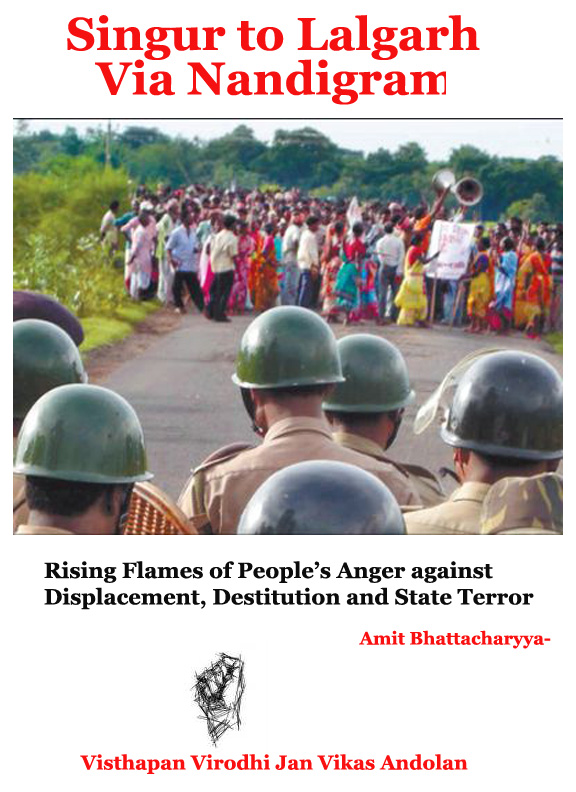Vernon Gonsalves and Sridhar Srinivasan were arrested with arms and explosives.
Police in Vidarbha, where these men are said to operate, say they are Naxals – not just members but senior leaders of CPI Maoist – the banned Naxal group.
”Fashionable parable of Leftism in the drawing rooms of Mumbai results in fatality and murdering of innocent villagers in Gadchiroli,” said Pankaj Gupta, Inspector General, Anti-Naxalite Operations, Maharashtra Police.
Police say just because Vernon and Sridhar were educated, urban activists, it does not mean they are not hardcore Naxals.
”This is a banned organisation. Being a member of CPI (Maoist) is an offence in itself. But a number of cases have been registered against both of them, of looting explosives, burning railway engines, encountered attack on police,” said Gupta.
So why the delay in arresting them?
”You have to realise system of CPI (Maoist) party underground. All activities (of CPI Maoist) are secret. They have double roles, double names. On one side, they are activists, on another side they may be working for them,” said Gupta.
”Sufficient evidence that people earlier working as activists have participated in violent activities as Dalam members. Similar evidence that Dalam members have been shifted to perfectly front organsaitions for propaganda,” he added.
But this police claim opens up a minefield of debate on the nature of support to Naxal cause.
Student radicals
Vidarbha, the backward region of Maharashtra, acted as a magnet for student radicals from Mumbai in the 80s.
”As far as myself goes, I don’t think I have made any big sacrifice. I am teaching in college and getting good salary. I am only active in women rights movements and democratic rights movements,” said Shoma Sen, Professor, Civil Rights Activist.
”But as far as some of my friends in the student movement go, they did continue their revoltionary lives and make these sacrifices. Some of the people I knew, Vernon, Sridhar and others seem to have gone underground,” Sen said.
Shoma names others like the academic Anuradha and her husband Kobad Gandhi.
Police documents say they are senior Naxal leaders but Shoma calls them victims of state repression.
”Anuradha Gandhi, who was mass leader friend of mine was active here. Now there was this thing among lawyers: ‘Look madam, sooner or later you will be put under TADA.’ Now there was a choice before her. She could continue that way and go and sit in jail. Or she could go to another place and take another name and work. They are out to fight against the state. That is the path they have chosen,” Sen said.
Shoma Sen is unapologetic about the Naxal movement and its aims, even its use of violence. These views have placed her on an informal police watch list.
The police do not admit to this watch list but privately it says more than 30 groups are being closely monitored.
Legal support
On the surface are civil rights groups, those working for the poor or for students. But according to police, in reality, Naxal front organizations meant to provide legal support or help with propaganda.
Surendra Gadling is a Nagpur-based lawyer known to take up only cases of those arrested as Naxals.
”I believe in Mao’s ideology. If that makes me a Maoist, then yes I am a Maoist,” said Surendra Gadling, advocate.
It’s an increasingly polarised debate with little middle ground for an activist who wants to work for social change but does not support the Naxals.
Paromita has been working with Tribals in Gadchiroli for nearly a decade and was labelled a Naxal supporter when she spoke out against fake police encounters.
But she was also targeted by the Naxals when she condemned their killings.
Of the two, she says, the Naxal groups are more dangerous because there is no one to question them unlike the state.
”We have to understand, in this environment, the police at least we know them. They are in uniform. Even when they killed China Matami, I could identify the police. I could go to High Court and say this inspector is responsible. As a citizen, there was a face I could hold responsible,” said Paromita Goswami, activist.
”The problem with non-state people are, who are these people, how do we identify them, what are there names, what do they look like, why do they kill people. For us as citizens when we have a right to life it doesn’t matter whose bullet is killing the tribals,” Goswami said.
What angers Paromita is her’s is not a view shared by many other civil rights groups.
”When the police arrests someone they raise a hue and cry but when Naxals kill tribals they are nowhere to be seen,” said Goswami.
Is it a wider Naxal political strategy? On one hand to reject the Constitution and wage war on the state but selectively invoke the same Constitution and its rights when need be?
”What’s wrong with that? Because you are rejecting it, it means through a process you would like to overthrow the present system and replace it with a better system. But while you are living in the present system, you use so many things of the present system,” said Shoma Sen.
The same language of human rights is now surfacing after the arrest of Vernon. So is this in defence of an innocent man or is it again the Naxal strategy to mislead?
http://www.ndtv.com/convergence/ndtv/story.aspx?id=NEWEN20070024243



























 attitude of branding every voice of dissent as that of a Naxalite and every protest against its authority as anti-national. The IAPL has been at the forefront in fighting cases in defence of several alleged Naxalites like Arun Ferreira, Vernon Gonsalves, Vishnu and Murali.
attitude of branding every voice of dissent as that of a Naxalite and every protest against its authority as anti-national. The IAPL has been at the forefront in fighting cases in defence of several alleged Naxalites like Arun Ferreira, Vernon Gonsalves, Vishnu and Murali.